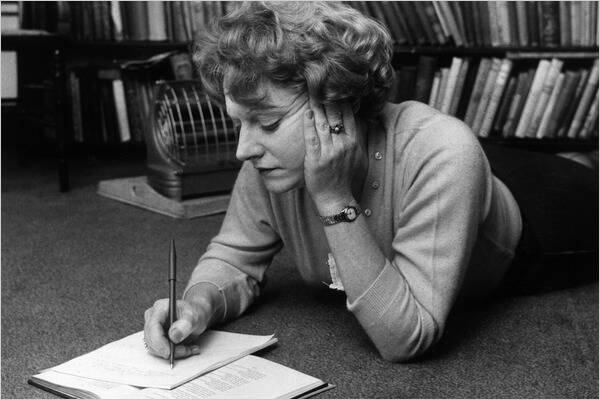In 1995, preparing a BBC documentary on Dame Muriel Spark, Alan Taylor wrote to the great Scottish novelist, asking what she her considered her achievement, her legacy. The author of 22 novels, several critical studies, plays and poems responded:
I have realized myself. I have expressed something I brought into the world with me. I believe I have liberated the novel in many ways, showing how anything whatsoever can be narrated, any experience set down, including sheer damn cheek. I think I have opened doors and windows in the mind, and challenged fears—especially the most inhibiting fears about what a novel should be (211).
What a wonderful take on the vocation of the writer! That what she has produced, even the novels, has been a form of self-completion. “I have realized myself. I have expressed something I brought into the world with me.” Muriel Spark, who died in 2006, lives on in an extensive written world—her fiction still bespeaking a truth she brought into the world. In it, she expresses her own humanity.
Ms. Spark once explained her conversion to Catholicism by saying that she had discovered that her own mind and imagination were those of the church. In both her faith and her fiction, she found a beauty and a freedom that was of God.
God is so free, so beautiful, and each soul God creates is an expression of both. Every soul bespeaks the beauty and the freedom of God; each is needed to express the fullness of God. This is the great truth, the great dignity, of our human nature.
Of course, two decisive doctrines of the faith immediately impose themselves: sin and salvation. Sin has limited, marred the self-expression of God in our nature. We cannot simply look upon our humanity and see the utter beauty and freedom of God. Even the greatest of saints carries some tincture of sin, which occludes the glory of God.
But not our savior, Jesus Christ. In him, in the humanity of the Second Person of the Trinity, we see the face of God unveiled. We look upon the full beauty and freedom of God, untouched by sin. Christ, who is fully God and fully man, is savior. He is the very initiative of God, God’s entrance into humanity.
Yet the imagination of the poet cannot help but to wonder what humanity would look like if it had fully accepted the salvation wrought in Christ, if there were even one human being who, being nothing more or less than a creature of God, fully responded, without hesitation or stain of sin, to the initiative of the savior.
Muriel Spark’s favorite Catholic author, John Henry Cardinal Newman, once wrote, “With Christians, a poetical view of things is a duty.” Only a poet can come close to imagining the utter beauty and freedom of God. That is why the church learns as much from her poets as her preachers.
And it is the imagination of the church, her poetical license, which tells us to look to Mary. In the Virgin of Nazareth, from the first moment of her existence, we see the savior’s grace utterly triumphant. In her, in one who is nothing more, or less, than a creature of God, the full beauty and freedom of God find expression.
She came before him in time. She was his mother. She became his disciple, but he was always her redeemer. She is the first fruit of the church, the bride of Christ. He is the Bridegroom, the head of the church. Yet in Mary, and in this creature alone, Christ himself can say, “I have realized myself. I have expressed something I brought into the world with me.”
Genesis 3: 9-15, 20 Ephesians 1: 3-6, 11-12 Luke 1: 26-38








